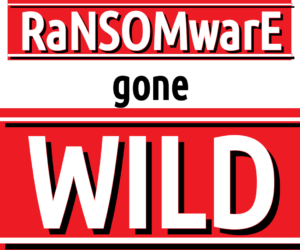 Keeping K-12 Cybersecure–the newsletter of the K-12 Cybersecurity Resource Center–curates the best cybersecurity and privacy news for K-12 policymakers, administrators, IT professionals, vendors, and privacy advocates. The latest edition (Keeping #K12CyberSecure [#23]: “RaNSOMwarE Gone Wild”) provides information on recent updates to the K-12 Cyber Incident Map, other additions to the Resource Center, informed commentary, and curated news you can use.
Keeping K-12 Cybersecure–the newsletter of the K-12 Cybersecurity Resource Center–curates the best cybersecurity and privacy news for K-12 policymakers, administrators, IT professionals, vendors, and privacy advocates. The latest edition (Keeping #K12CyberSecure [#23]: “RaNSOMwarE Gone Wild”) provides information on recent updates to the K-12 Cyber Incident Map, other additions to the Resource Center, informed commentary, and curated news you can use.
While there’s much more available in the newsletter itself, here’s a sampling of the must-read articles published since last edition:
- If you click one link in this edition, make it this story – “Cyberattacks inflict deep harm at technology-rich schools” – from Michael Melia of the Associated Press. Punch line: You’d be hard pressed to find a U.S. school today that is not technology-rich (especially when considering administrative and operational systems).
- The New York Times welcomes us to the ‘K-12 Surveillance State‘.
- iWork, Office and Google Docs banned from German schools, because of more stringent student data privacy laws.
- Sometimes a cigar is just a cigar: “Champaign Schools (IL) weren’t hacked: The ‘lockdown message’ was a mistake.”
- This is not a good look for the Maryland State Department of Education, yet – at the same time – I wonder if they really are an outlier: “1.4 million student Social Security numbers found unencrypted in Maryland.”
- Good K-12 cybersecurity advice, courtesy of the technology department of the Dearborn (MI) Public schools. Likewise, consider these five steps to address the protection of confidential information and combat cybersecurity risks before the start of fall semester.
- Ohio to launch a new program with local governments and school districts to improve cybersecurity throughout the state.
- Months after cyberattacks, Anne Arundel (MD) schools and libraries have upped training, security.
- I would love to see this program (“Teenage hackers are offered a second chance under European experiment“) take root in the U.S. Instead, school districts routinely threaten legal action against K-12 student hackers.
Be sure to check out the full newsletter and sign-up to ensure you get all the latest news direct to your inbox. And, as always, please contact us with any feedback, tips, or suggestions.